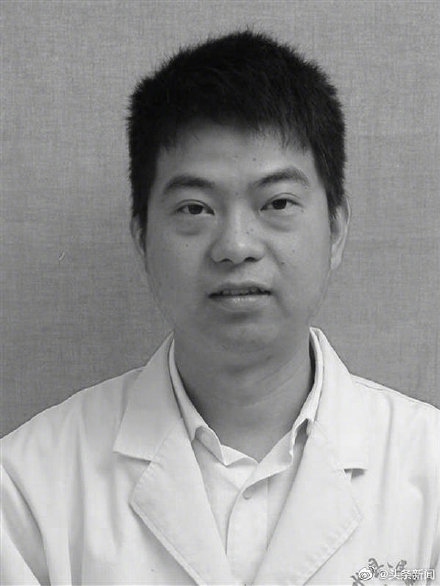
Hu Shuyun, 38, a cardiologist at Renmin Hospital in Jishui, was completing his ward rounds when the incident happened, according to the hospital's announcement.
The suspect is a 43-year-old man surnamed Zeng, who was detained after the attack, said local police on Tuesday afternoon.
The motives behind the attack are not yet known. Media reports said the suspect stabbed Hu multiple times with a knife.
Video clips circulating online showed the physician in a ward after being injured. Blood can be seen on the floor, walls and beds.
Violent attacks against medical staff, known as "yinao," have spurred calls to make such behaviors a specific criminal offense, and prompted the authorities to improve legislation to protect the safety of medical staff.
Most violent attacks against medical staff are regulated based on the Criminal Law, Gao Yandong at the Institute for Public Policy of Zhejiang Province told the Global Times.
However, in practice, the perpetrator may only receive a light punishment, considering that the perpetrator's harming the doctor or causing disturbance may because his/her relatives or friends have not been effectively treated, according to Gao. "To reduce or prevent violence against medical personnel, we need to strictly enforce justice and promote law enforcement," he noted
Gao suggested that China should add special charges like "atrocity crime" and "coercion crime," as in Japan and South Korea, to close legal loopholes.
The National People's Congress, China's top legislature, passed the Basic Healthcare and Health Promotion Law on December 28 2019, which took effect on June 1, 2020, prohibiting any organizations or individuals from threatening or endangering the safety of medical staff.
It stipulates that anyone who violates the provisions of this law shall bear criminal responsibility, and causing injuries to others or property damage shall result in civil liability.
On December 30, Shanghai issued Measures on the Protection of the Rights and Interests of Medical and Health Personnel. The measures, which will take effect on March 1, introduce a punishment system and allow for relevant information about troublemakers to be sent to medical and health institutions so they can take action in advance.
Cases of violence against medical staff have frequently sparked public outrage. Yang Wen, an emergency room physician at the Civil Aviation General Hospital in Beijing, died on December 25, 2019 when her neck was slashed by Sun Wenbin, her patient's son, on Christmas Eve.
Just weeks after the brutal slaying, three medical staffers and one resident were attacked on January 20, 2020 at Chaoyang Hospital in Beijing by a 36-year-old man, surnamed Cui. An ophthalmologist named Tao Yong was stabbed in his head and arms.
From 2019 to April 2020, the people's courts concluded 159 medical-related crimes, including killing, wounding and severely disrupting the order of medical institutions, according to an article released by the Supreme People's Court of China.
From 2009 to 2018, 24 medical personnel died and 362 were injured in 295 reported cases, according to a 2019 report by the School of the Journalism and Communication of Renmin University of China.

